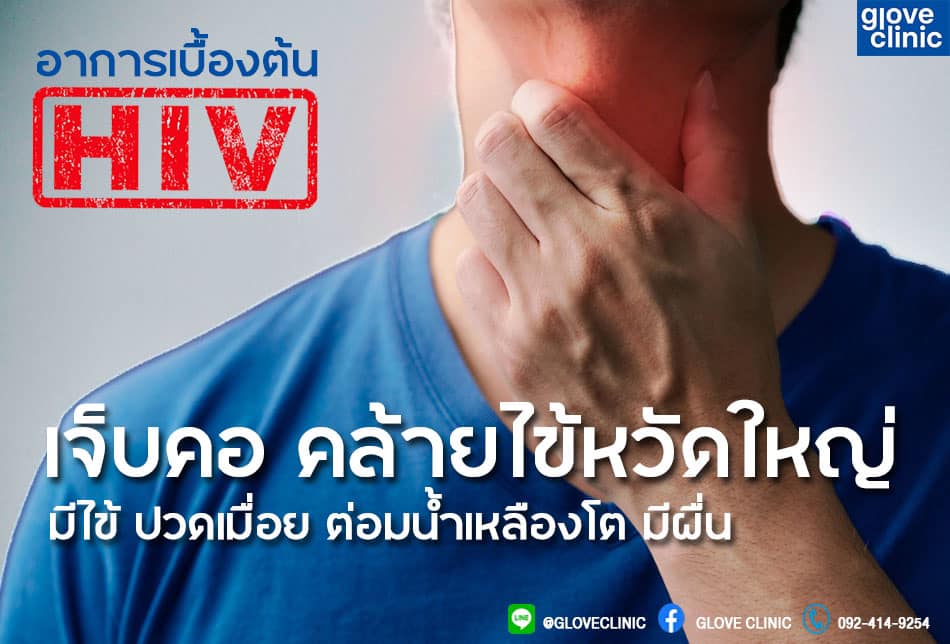294/1 Asia Building (11th Floor), Phyathai, Bangkok
ตรวจ HIV รีวิวความรู้สำหรับการตรวจเอชไอวี (HIV test)
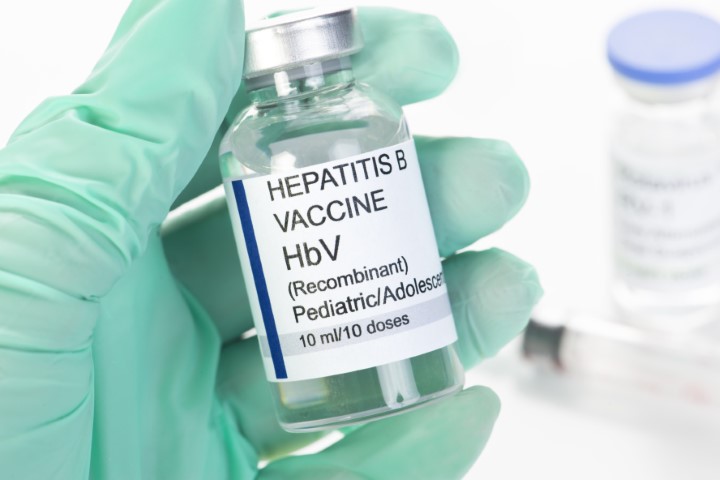
Why get vaccinated?
Hepatitis B vaccine can prevent hepatitis B. Hepatitis B is a liver disease that can cause mild illness lasting a few weeks, or it can lead to a serious, lifelong illness.
Acute hepatitis B infection is a short-term illness that can lead to fever, fatigue, loss of appetite, nausea, vomiting, jaundice (yellow skin or eyes, dark urine, clay-colored bowel movements), and pain in the muscles, joints, and stomach.
Chronic hepatitis B infection is a long-term illness that occurs when the hepatitis B virus remains in a person’s body. Most people who go on to develop chronic hepatitis B do not have symptoms, but it is still very serious and can lead to liver damage (cirrhosis), liver cancer, and death. Chronically-infected people can spread hepatitis B virus to others, even if they do not feel or look sick themselves.
Hepatitis B is spread when blood, semen, or other body fluid infected with the hepatitis B virus enters the body of a person who is not infected. People can become infected through:
- Birth (if a mother has hepatitis B, her baby can become infected)
- Sharing items such as razors or toothbrushes with an infected person
- Contact with the blood or open sores of an infected person
- Sex with an infected partner
- Sharing needles, syringes, or other drug-injection equipment
- Exposure to blood from needlesticks or other sharp instruments
Hepatitis B vaccine
Hepatitis B vaccine is usually given as 2, 3, or 4 shots. Hepatitis B vaccine is recommended for certain unvaccinated adults:
- People whose sex partners have hepatitis B
- Sexually active persons who are not in a long-term monogamous relationship
- Persons seeking evaluation or treatment for a sexually transmitted disease
- Men who have sexual contact with other men
- People who share needles, syringes, or other drug-injection equipment
- People who have household contact with someone infected with the hepatitis B virus
- Health care and public safety workers at risk for exposure to blood or body fluids
- Residents and staff of facilities for developmentally disabled persons
- Persons in correctional facilities
- Victims of sexual assault or abuse
- Travelers to regions with increased rates of hepatitis B
- People with chronic liver disease, kidney disease, HIV infection, infection with hepatitis C, or diabetes
- Anyone who wants to be protected from hepatitis B
Hepatitis B vaccine may be given at the same time as other vaccines.
Three-Dose Hepatitis B Vaccine Schedule
Three doses are generally required to complete the hepatitis B vaccine series.
1st Shot – At any given time, but newborns should receive this dose in the delivery room
2nd Shot – At least one month (or 28 days) after the 1st shot
3rd Shot – At least 4 months (16 weeks) after the 1st shot (and at least 2 months after the 2nd shot).
You do not need to restart the hepatitis B vaccine series if you miss any of the shots. For example, if you start the vaccine series and stop, then get the 2nd shot when you can and make sure to get the 3rd shot at least two months later. Or, if you get the first two doses of vaccine and miss the third dose, then just schedule the last shot when you can. To be certain that you are protected against hepatitis B, ask for a simple blood test to check your “antibody titers” that will confirm whether the vaccination was successful.
Hepatitis B Vaccine Safety and Side Effects
Hepatitis B Vaccine Safety and Side Effects
More than 1 billion doses of the hepatitis B vaccine have been given worldwide and it is considered one of the safest and most effective vaccines ever made. Numerous studies looking at the vaccine’s safety have been conducted by the World Health Organization, U.S. Centers for Disease Control and Prevention, and many different medical societies.
No evidence has been found that the hepatitis B vaccine causes sudden infant deaths (SIDs), autism, multiple sclerosis, or other neurological disorders.
Common side effects from the hepatitis B vaccine may include soreness, swelling and redness at the injection site. The vaccine may not be recommended for those with documented yeast allergies or a history of an adverse reaction to the vaccine.
Reference:
Make Appointment





Relate content :

ฉีดวัคซีนงูสวัดที่ glove clinic
งูสวัดคือไวรัสชนิดหนึ่ง (Herpes zoster) ซึ่งเป็นเชื้อไวรัสตัวเดียวกันกับอีสุกอีใส (Varicella zoster) เมื่อเราติดเชื้อไวรัสอีสุกใสในวัยเด็กแล้ว ไวรัสสามารถที่จะหลบซ่อนได้ในร่างกายเป็นเวลานานหลายปี จนกระทั่งเมื่อร่างกายอ่อนแอ ไวรัสนั้นจึงออกมาทำให้เกิดอาการตุ่มน้ำใส ปวดแสบร้อนตามบริเวณที่เส้นประสาทต่าง ๆ ของร่างกายซึ่งเรียกกันว่างูสวัด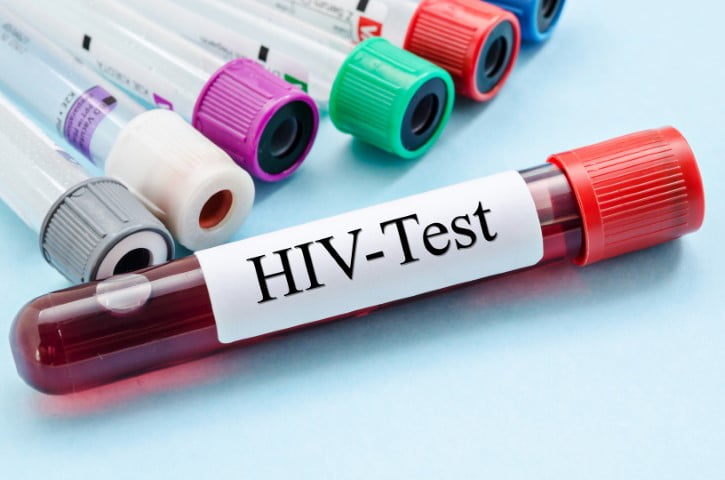
ตรวจ HIV รีวิวความรู้สำหรับการตรวจเอชไอวี (HIV test)
เอชไอวีคือไวรัสที่สามารถติดต่อได้จากการมีเพศสัมพันธ์, การใช้เข็มฉีดยาร่วมกัน, และการติดจากแม่สู่ลูก เมื่อติดเชื้อไวรัส HIV ไวรัสจะทำให้ภูมิคุ้มกันของร่างกายอ่อนแอลง และติดเชื้อโรคอื่น ๆ ได้ง่าย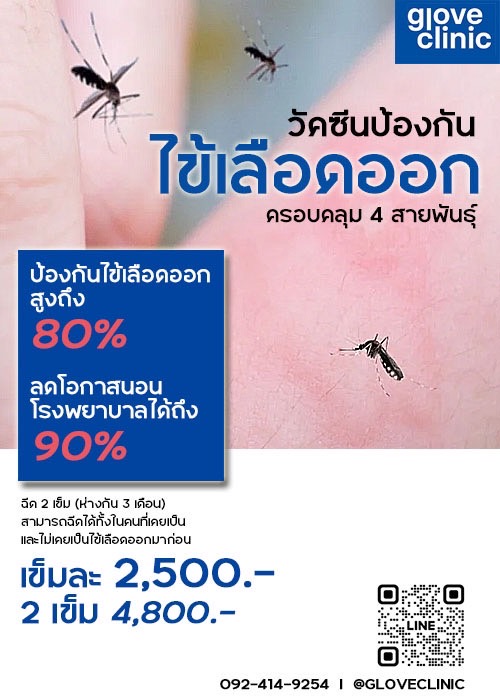
ปีนี้มีคนไข้ป่วยด้วยไข้เลือดออกมากกว่า 2-3 ปีที่ผ่านมา
เนื่องจากว่าผู้คนกลับมาใช้ชีวิตปกติ มีการเดินทาง จึงพบการระบาดมากขึ้น โดยจากสถิติของกรมควบคุมโรคพบว่ามีผู้ป่วยด้วยไข้เลือดออกในประเทศไทยเกินกว่า 60,000 รายไปแล้วทั้งปี 2566 ไข้เลือดออกเป็นโรคที่ก่อให้เกิดความรุนแรงได้ทั้งในเด็กและผู้ใหญ่ โดยเฉพาะอย่างยิ่งในคนที่เป็นซ้ำครั้งที่ 2 จะมีโอกาสเกิดภาวะช๊อคและเสียชีวิตได้มากขึ้น (โอกาสเสียชีวิตอยู่ราว ๆ 1:1,000) วัคซีนไข้เลือดออกรุ่นใหม่สามารถครอบคลุมได้ทั้ง 4 สายพันธุ์และทั้งนี้ผลการศึกษาพบว่าช่วยป้องกันการติดเชื้อได้ถึง 80% และลดโอกาสการนอนโรงพยาบาลได้ถึง 90% นอกจากนี้ยังสามารถฉีดได้ทั้งในคนที่เคยและไม่เคยเป็นไข้เลือดออกมาก่อน (วัคซีนไข้เลือดออกรุ่นเก่าไม่ควรฉีดในคนที่ยังไม่เคยเป็นไข้เลือดออก) สอบถามข้อมูลเพิ่มเติมเรื่องวัคซีนไข้เลือดออกได้ที่ 092-414-9254, Line Official @gloveclinic (มีแอดข้างหน้า)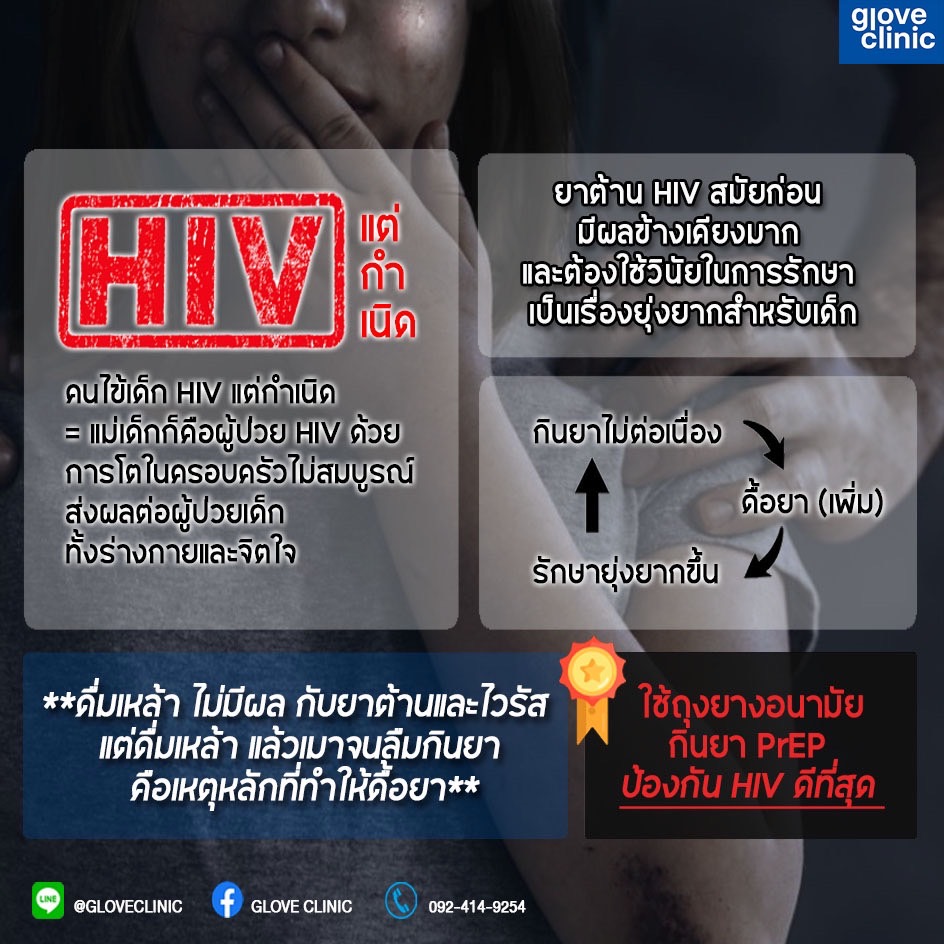
HIV แต่กำเนิด
ประเด็นร้อนที่ได้รับการพูดถึงอย่างมากในโลกออนไลน์ที่มีข้อความของนักศึกษาหญิงเปิดเผยว่าตัวเธอเองได้มีเพศสัมพันธ์แบบ one night stand เวลาไปเที่ยวกลางคืนบ่อยครั้ง และได้บอกความจริงว่าเธอเองมีเชื้อ HIV
อาการของเอดส์เป็นอย่างไร ทำความรู้จักกับเอดส์
เอดส์ คืออะไร แท้จริงแล้วเอดส์ไม่ใช่โรค หากแต่คือระยะสุดท้ายของการติดเชื้อ HIV ซึ่ง HIV นั่นเองคือไวรัสที่ทำลายภูมิคุ้มกันของร่างกาย โดยเซลล์หลักที่ถูกเล่นงานโดยไวรัสก็คือเม็ดเลือดขาว CD4 ซึ่งเป็นเซลล์ที่บัญชาการระบบภูมิคุ้มกันของร่างกาย ซึ่งเอดส์ในภาษาอังกฤษก็คือ AIDS ย่อมาจาก Acquired immunodeficiency syndrome กำเนิดของการเรียกชื่อว่าเอดส์ เดือนมิถุนายน ค.ศ. 1981 ในวารสารของกรมควบคุมโรค ประเทศสหรัฐอเมริกาได้รายงานว่ามีเกย์หนุ่ม 5 คนมีอาการปอดอักเสบจากเชื้อรา และได้รับการรักษาในโรงพยาบาลที่ Los Angeles โดย 2 รายเสียชีวิต และนอกจากนี้ทั้ง 5 คนยังพบการติดเชื้อไวรัส CMV และมีเชื้อราในช่องปากร่วมด้วย ซึ่งเชื้อต่าง ๆ ที่เล่ามานั้นมักเจอในผู้ป่วยที่มีภูมิคุ้มกันบกพร่อง ในขณะนั้นโลกยังไม่ได้รู้จักกับไวรัส HIV ว่าเป็นสาเหตุตั้งต้นของสิ่งที่เกิดขึ้น การเรียกภาวะนี้ในยุคแรกจึงได้เรียกว่า AIDS หรือ “เอดส์” ซึ่งย่อมาจาก acquired immunodeficiency syndrome อาการของเอดส์แตกต่างกับ HIV ยังไง เอดส์คือชื่อระยะที่ 3…